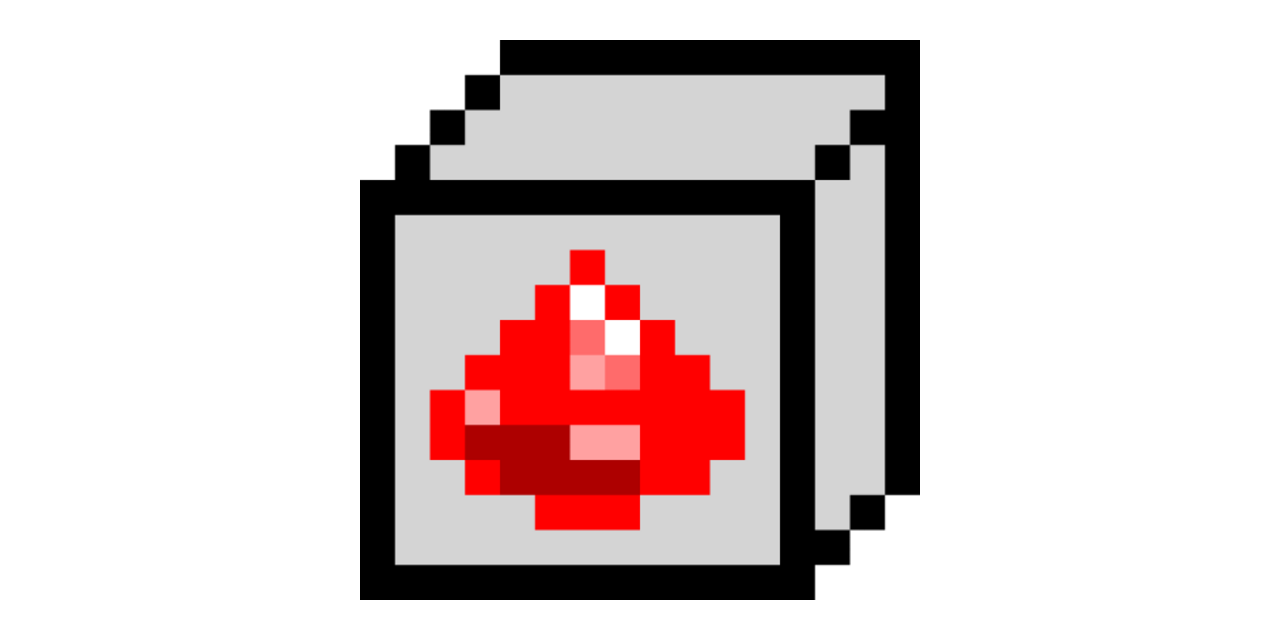https://github.com/geminabox/geminabox
Really simple rubygem hosting
https://github.com/geminabox/geminabox
gem hacktoberfest ruby rubygems
Last synced: 10 months ago
JSON representation
Really simple rubygem hosting
- Host: GitHub
- URL: https://github.com/geminabox/geminabox
- Owner: geminabox
- License: mit
- Created: 2010-01-07T23:05:13.000Z (about 16 years ago)
- Default Branch: master
- Last Pushed: 2025-03-05T20:50:25.000Z (12 months ago)
- Last Synced: 2025-04-23T17:09:13.887Z (10 months ago)
- Topics: gem, hacktoberfest, ruby, rubygems
- Language: Ruby
- Homepage: https://tomlea.co.uk/p/gem-in-a-box
- Size: 590 KB
- Stars: 1,507
- Watchers: 25
- Forks: 317
- Open Issues: 6
-
Metadata Files:
- Readme: README.md
- Changelog: CHANGELOG.md
- Contributing: CONTRIBUTING.md
- License: MIT-LICENSE
- Code of conduct: CODE_OF_CONDUCT.md
Awesome Lists containing this project
- awesome-ruby - Gem in a box - Really simple rubygem hosting. (Gem Servers)
- Open-Source-Ruby-and-Rails-Apps - geminabox - Really simple rubygem hosting 🔥 ✅ 🚀 (Happy Exploring 🤘)
- fucking-awesome-ruby - Gem in a box - Really simple rubygem hosting. (Gem Servers)
README
[](https://github.com/geminabox)
# Gem in a Box – Really simple rubygem hosting
[](https://github.com/geminabox/geminabox/actions/workflows/ruby.yml?query=branch%3Amaster)
[](http://badge.fury.io/rb/geminabox)
[](https://codeclimate.com/github/geminabox/geminabox)
Geminabox lets you host your own gems, and push new gems to it just like with rubygems.org.
The bundler dependencies API is supported out of the box.
Authentication is left up to either the web server, or the Rack stack.
For basic auth, try [Rack::Auth](http://www.rubydoc.info/github/rack/rack/Rack/Auth/Basic).

## System Requirements
- Ruby 2.3 through 3.1 (Ruby 2.7, 3.0, or 3.1 is highly recommended)
- RubyGems 2.5 through 3.3 (2.5.2 or higher is highly recommended)
Use RubyGems the latest version (at least 2.5.2) for as an end-user full features like [`gem yank --host`](https://github.com/rubygems/rubygems/pull/1361).
## Server Setup
gem install geminabox
Create a config.ru as follows:
require "rubygems"
require "geminabox"
Geminabox.data = "/var/geminabox-data" # ... or wherever
# Use Rack::Protection to prevent XSS and CSRF vulnerability if your geminabox server is open public.
# Rack::Protection requires a session middleware, choose your favorite one such as Rack::Session::Memcache.
# This example uses Rack::Session::Pool for simplicity, but please note that:
# 1) Rack::Session::Pool is not available for multiprocess servers such as unicorn
# 2) Rack::Session::Pool causes memory leak (it does not expire stored `@pool` hash)
use Rack::Session::Pool, expire_after: 1000 # sec
use Rack::Protection
run Geminabox::Server
Start your gem server with 'rackup' to run WEBrick or hook up the config.ru as you normally would ([passenger](https://www.phusionpassenger.com/), [thin](http://code.macournoyer.com/thin/), [unicorn](https://bogomips.org/unicorn/), whatever floats your boat).
## RubyGems Proxy
Geminabox can be configured to pull gems, it does not currently have, from rubygems.org. To enable this mode you can either:
Set RUBYGEM_PROXY to true in the environment:
RUBYGEMS_PROXY=true rackup
Or in config.ru (before the run command), set:
Geminabox.rubygems_proxy = true
If you want Geminabox to carry on providing gems when rubygems.org is unavailable, add this to config.ru:
Geminabox.allow_remote_failure = true
## HTTP adapter
Geminabox uses the HTTPClient gem to manage its connections to remote resources.
The relationship is managed via Geminabox::HttpClientAdapter.
To configure options of HTTPClient, pass your own HTTPClient object in config.ru as:
```ruby
# Geminabox.http_adapter = Geminabox::HttpClientAdapter.new # default
Geminabox.http_adapter.http_client = HTTPClient.new(ENV['http_proxy']).tap do |http_client|
http_client.transparent_gzip_decompression = true
http_client.keep_alive_timeout = 32 # sec
http_client.ssl_config.verify_mode = OpenSSL::SSL::VERIFY_NONE
http_client.send_timeout = 0
http_client.receive_timeout = 0
end
```
If you would like to use an alternative HTTP gem, create your own adapter
and specify it in config.ru:
Geminabox.http_adapter = YourHttpAdapter.new
It is recommend (but not essential) that your adapter inherits from HttpAdapter.
The adapter will need to replace HttpAdapter's methods with those specific to
the alternative HTTP gem. It should also be able to handle HTTP proxy
settings.
Defining your own adapter also allows you to configure Geminabox to use the
local systems SSL certificates.
TemplateFaradayAdapter is provided as an example of an alternative HTTPAdapter.
## Hooks
You can add a hook (anything callable) which will be called when a gem is
successfully received.
```ruby
Geminabox.on_gem_received = Proc.new do |gem|
puts "Gem received: #{gem.spec.name} #{gem.spec.version}"
end
```
Typically you might use this to push a notification to your team chat. Any
exceptions which occur within the hook is silently ignored, so please ensure they
are handled properly if this is not desirable.
Also, please note that this hook blocks `POST /upload` and `POST /api/v1/gems` APIs processing.
Hook authors are responsible to perform any action non-blocking/async to avoid HTTP timeout.
## Client Usage
Since version 0.10, Geminabox supports the standard gemcutter push API:
gem push pkg/my-awesome-gem-1.0.gem --host HOST
You can also use the gem plugin:
gem install geminabox
gem inabox pkg/my-awesome-gem-1.0.gem
And since version 1.2.0, Geminabox supports the standard gemcutter yank API:
gem yank my-awesome-gem -v 1.0 --host HOST
Configure Gem in a box (interactive prompt to specify where to upload to):
gem inabox -c
Change the host to upload to:
gem inabox -g HOST
Simples!
## Command Line Help
Usage: gem inabox GEM [options]
Options:
-c, --configure Configure GemInABox
-g, --host HOST Host to upload to.
-o, --overwrite Overwrite Gem.
Common Options:
-h, --help Get help on this command
-V, --[no-]verbose Set the verbose level of output
-q, --quiet Silence commands
--config-file FILE Use this config file instead of default
--backtrace Show stack backtrace on errors
--debug Turn on Ruby debugging
Arguments:
GEM built gem to push up
Summary:
Push a gem up to your GemInABox
Description:
Push a gem up to your GemInABox
## Docker
Using Gem in a Box is really simple with the Dockerfile. Move this Dockerfile into a directory that you want to use for your server.
That directory only needs to contain:
```
config.ru (explained above)
Gemfile
Gemfile.lock
```
Your Gemfile only needs:
```ruby
source 'https://rubygems.org'
gem 'geminabox'
```
From there
```
docker build -t geminabox .
```
```
docker run -d -p 9292:9292 geminabox:latest
```
Your server should now be running!
## Running the tests
Running `rake` will run the complete test suite.
The test suite uses
[minitest-reporters](https://github.com/minitest-reporters/minitest-reporters)
with the default reporter. To get more detailed test output, use `rake
MINITEST_REPORTER=SpecReporter`. With this setting, output of the Geminabox
server that is started for integration tests is sent to `stdout` as well.
## Licence
[MIT_LICENSE](./MIT-LICENSE)
## ChangeLog
[CHANGELOG.md](./CHANGELOG.md)